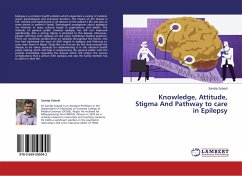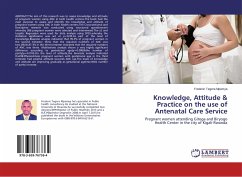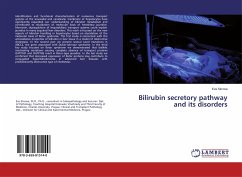
Knowledge, Attitude, Stigma And Pathway to care in Epilepsy
Versandkostenfrei!
Versandfertig in 6-10 Tagen
27,99 €
inkl. MwSt.

PAYBACK Punkte
14 °P sammeln!
Epilepsy is a common health problem which engenders a variety of medical, social, psychological and economic burdens. The impact of the disease is felt, noticed and experienced in all spheres of the patient's life and also to some extent in patient's family. Stereotyped assumptions about epileptics are inherent in many cultures based in superstitions and beliefs. The attitude of general public towards epilepsy has still not improved significantly. Also a strong stigma is attached to this disease. Moreover, people suffering with epilepsy are still using traditional healing practices. There are ...
Epilepsy is a common health problem which engenders a variety of medical, social, psychological and economic burdens. The impact of the disease is felt, noticed and experienced in all spheres of the patient's life and also to some extent in patient's family. Stereotyped assumptions about epileptics are inherent in many cultures based in superstitions and beliefs. The attitude of general public towards epilepsy has still not improved significantly. Also a strong stigma is attached to this disease. Moreover, people suffering with epilepsy are still using traditional healing practices. There are numerous studies done on epilepsy throughout the world, only few had addressed the issue of KAP, stigma in epilepsy and Pathway to care; even fewer in Nepal. Study like can this can be first step towards the disease to be taken seriously for implementing it in the national health policy making which will help in empowering the general public with the positive knowledge regarding the disease which will reduce the various complications that a person with epilepsy and also the family member has to suffer in their life.












